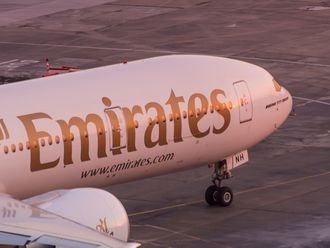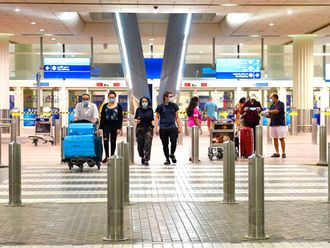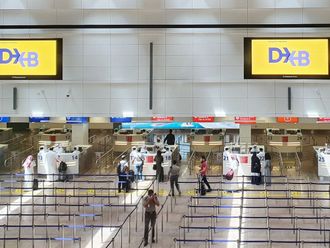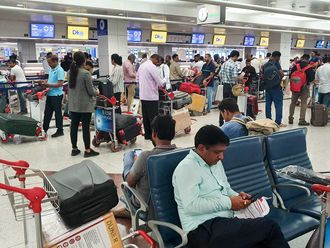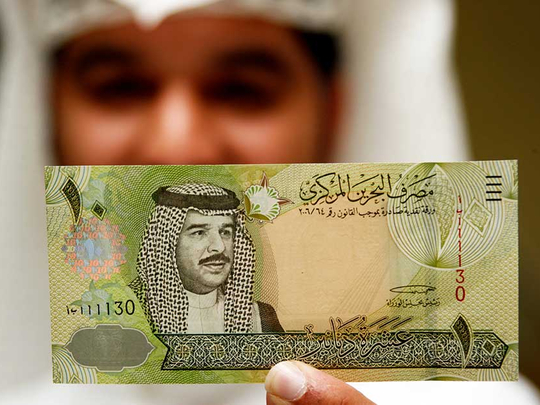
Dubai: Bahrain’s dinar recovered from 17-year lows and its bond prices rebounded on Wednesday after the country’s diplomatic allies in the Gulf pledged to prevent its ballooning public debt from triggering a financial crisis.
Bankers said the pledge of aid to Bahrain by Saudi Arabia, the UAE and Kuwait eased fears that Manama might be unable to redeem a $750 million (Dh2.7 billion) Islamic bond that will mature in November.
“It’s time to buy Bahrain,” Barclays said in an analyst report, predicting the aid pledge would ease international investors’ worries about the country’s solvency.
However, the cost of insuring Bahrain’s debt against default remained high on Wednesday, suggesting many investors were still sceptical about the country’s ability to stabilise its finances over the long term without repeated injections of aid.
The dinar bounced to 0.37850 against the US dollar in early spot market trade. On Tuesday, it had dropped as low as 0.38261, moving away from its official peg of 0.37608 as hedge funds dumped Bahraini bonds.
The currency also recovered in the forwards market, which reflects expectations for its value in coming months. One-year dollar/dinar forwards fell to 210 points from Tuesday’s peak of 408 points, their highest since September 2016.
The rebounding dinar prompted investors to buy back Bahraini debt. The yield on its international bond maturing in August 2023 plunged to 7.58 per cent from 8.95 per cent — though it stayed far above early 2018 levels of 5.22 per cent.
Saudi Arabia, the UAE and Kuwait said in a statement released shortly before midnight on Tuesday that they were in discussions on aid for Bahrain and would consider all options to support the country.
They promised “an integrated programme that will soon be announced to enable the Kingdom of Bahrain to support its economic reforms and fiscal stability”. No details were given.
State budget
Supporting Bahrain makes sense for its neighbours economically and politically — any collapse of its currency could undermine confidence in the rest of the region. Saudi Arabia and the UAE sent security forces to protect the government in Manama from an uprising in 2011.
The small size of the Bahraini economy would make it relatively easy for neighbouring states to bail it out. Manama has projected a state budget gap of $3.5 billion in 2018, far less than the hundreds of billions of dollars which each of its neighbours hold in their sovereign wealth funds.
However, five-year Bahraini credit default swaps dropped only 16 basis points to 529 early on Wednesday, Markit said, remaining near record highs and implying a probability of around 30 per cent of a sovereign default in the next five years.
Bahrain’s state finances are among the weakest in the region; the International Monetary Fund warned last month that Manama needed to reform its finances urgently, as public debt had jumped to 89 per cent of gross domestic product last year.
Domestic political opposition has slowed austerity plans designed to cut the government’s budget deficit. Many bankers think that unless authorities can ram through tax increases and spending cuts, its finances will remain shaky.
The statement by Bahrain’s allies did not say whether they would demand policy commitments along with the aid, but their reference to economic reforms suggested there would be a link.






